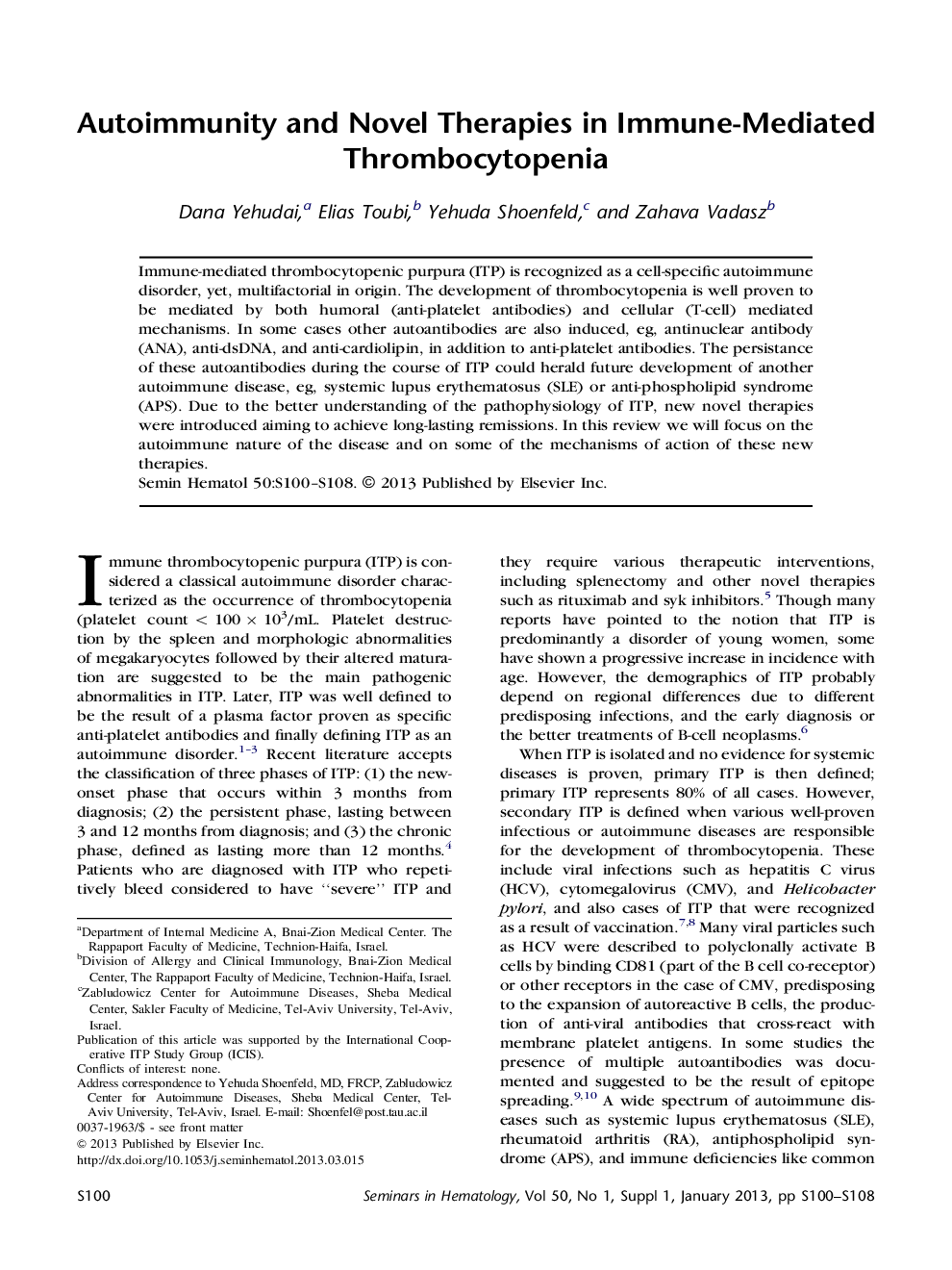| Article ID | Journal | Published Year | Pages | File Type |
|---|---|---|---|---|
| 6113828 | Seminars in Hematology | 2013 | 9 Pages |
Abstract
Immune-mediated thrombocytopenic purpura (ITP) is recognized as a cell-specific autoimmune disorder, yet, multifactorial in origin. The development of thrombocytopenia is well proven to be mediated by both humoral (anti-platelet antibodies) and cellular (T-cell) mediated mechanisms. In some cases other autoantibodies are also induced, eg, antinuclear antibody (ANA), anti-dsDNA, and anti-cardiolipin, in addition to anti-platelet antibodies. The persistance of these autoantibodies during the course of ITP could herald future development of another autoimmune disease, eg, systemic lupus erythematosus (SLE) or anti-phospholipid syndrome (APS). Due to the better understanding of the pathophysiology of ITP, new novel therapies were introduced aiming to achieve long-lasting remissions. In this review we will focus on the autoimmune nature of the disease and on some of the mechanisms of action of these new therapies.
Related Topics
Health Sciences
Medicine and Dentistry
Hematology
Authors
Dana Yehudai, Elias Toubi, Yehuda Shoenfeld, Zahava Vadasz,
